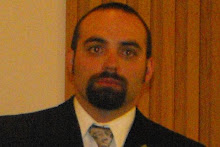I am always amused when I hear people say things like, "I don't believe in Christian perfection," or, "We just cannot live a holy life." Doesn't the Bible tell us to do these things?
"Pursue peace with all people, and holiness, without which no one will see the Lord (Heb. 12:14)."
Jesus said, "Therefore you shall be perfect, just as your Father in heaven is perfect (Matthew 5:48)."
So what does it really mean when someone says that they do not believe in holiness, or Christian perfection? Since the Bible says that we should be perfect and holy it must mean that we do not believe what the Bible says. Even those who claim to respect the authority of the Bible will claim not to believe something that is clearly taught there.
Since the Bible is "God-breathed" or "inspired" by God I'm not so sure that any of us are in a position to decide which of its teachings we should or should not believe. Here's my suggestion, and the point of this blog. Rather than just ignoring something that is clear in Scripture, why don't we find a way to define it that makes sense in light of all Scripture? Wouldn't that make more sense than ignoring it and acting like it doesn't exist?
How do you define holiness and perfection? How should we define them? Do you suppose that if we define them the way that God intend that they will make sense? I would suggest that definition and diligent study is a far better practice than willful ignorance.
Tuesday, June 22, 2010
Subscribe to:
Comments (Atom)




